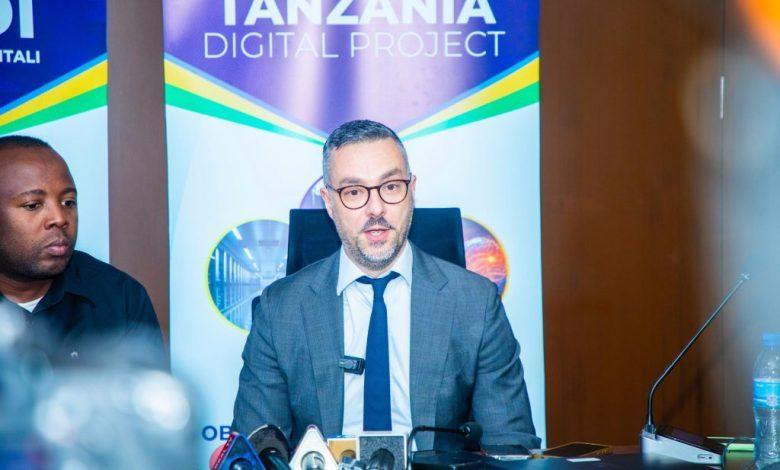Africa-Press – Tanzania. TANZANIA is on the brink of a digital revolution, with an ambitious Digital Tanzania Project (DTP) already 90 per cent complete—bringing faster connectivity, smarter governance and wider access to digital services across the nation.
Spearheaded by the government in collaboration with the World Bank (WB), the five-year initiative is delivering tangible results in expanding digital infrastructure, enhancing digital skills and modernising public service delivery.
Speaking during a project evaluation session in Dar es Salaam, World Bank Task Team Leader, Mr Paul Seaden, expressed the Bank’s pride in supporting the transformative initiative, which is now in its fourth year.
“Tanzania has emerged as a regional example of how prioritising digital transformation can deliver real economic and social benefits,” Mr Seaden said.
He commended the Ministry of Information, Communication and Information Technology for its commitment and progress.
“As we move into the final year of implementation, the focus is on closing out the remaining workstreams while exploring future collaboration to sustain and build on this momentum.”
On his part, Director of ICT Systems Development and Implementation Manager of the Digital Tanzania Project, Mr Mohamed Abdi Mashaka, confirmed that 90 per cent of the project is complete and it remains on track for full completion by October next year.
He said that following the launch of the Digital Economy Strategy by President Samia Suluhu Hassan last year, the ministry has collaborated with various sectors to ensure the project’s success.
“Through this strategy, Tanzania has positioned itself competitively on the global digital stage. During the launch, we were instructed to ensure systems could communicate with one another. To date, over 891 systems from both government and private sectors have been integrated,” Mr Mashaka noted.
He added that the project has strengthened the country’s capacity to manage its own data.
“We now have a robust digital infrastructure that enables local data storage without relying on external support. This boosts national security and reinforces data sovereignty,” he emphasised.
Project Coordinator Bakari Mwamgugu echoed the sentiment, stating that the initiative aims to revolutionise communication infrastructure in previously underserved areas.
“We are expanding tower coverage and providing digital awareness training to citizens who previously lacked basic tech skills. The goal is to bring quality services to all Tanzanians,” he said.
Mr Mwamgugu elaborated that the project has four core components: expanding rural digital connectivity; reducing internet costs for government institutions; increasing affordable data centre capacity; and connecting 901 government institutions—including health centres, schools and public offices—to the national fibre-optic backbone.
“This integration enables the delivery of faster, more efficient and transparent digital services,” he said.
“When we connect these 901 institutions, it means citizens can access services digitally—from the village to the national level. These services will be faster, more affordable and more transparent than traditional manual systems,” he explained.
To make public access even easier, Mr Mwamgugu announced the construction of 32 one-stop service centres across the country.
These centres will enable citizens to access key services—such as building permits, birth certificates, NIDA IDs and business licences—all under one roof.
In addition, the project will establish eight innovation hubs in Arusha, Dodoma, Mwanza, Tanga, Lindi, Dar es Salaam, Mbeya and Zanzibar to support young innovators and entrepreneurs.
“These hubs will be available free of charge to youths and other citizens who want to develop their ideas. This is a major step in fostering local innovation,” Mr Mwamgugu said.
He also revealed that the project includes plans for a digital identity number system that will allow Tanzanians to use one identification number from birth to death, for accessing all government services.
Funded at a total of 150 million US dollars—most of which has already been disbursed—the Digital Tanzania Project focuses on building infrastructure, deploying e-government services, and advancing digital literacy.
Among its major achievements so far, about 758 mobile towers have been constructed in underserved areas, significantly boosting mobile and internet connectivity nationwide.
For More News And Analysis About Tanzania Follow Africa-Press







